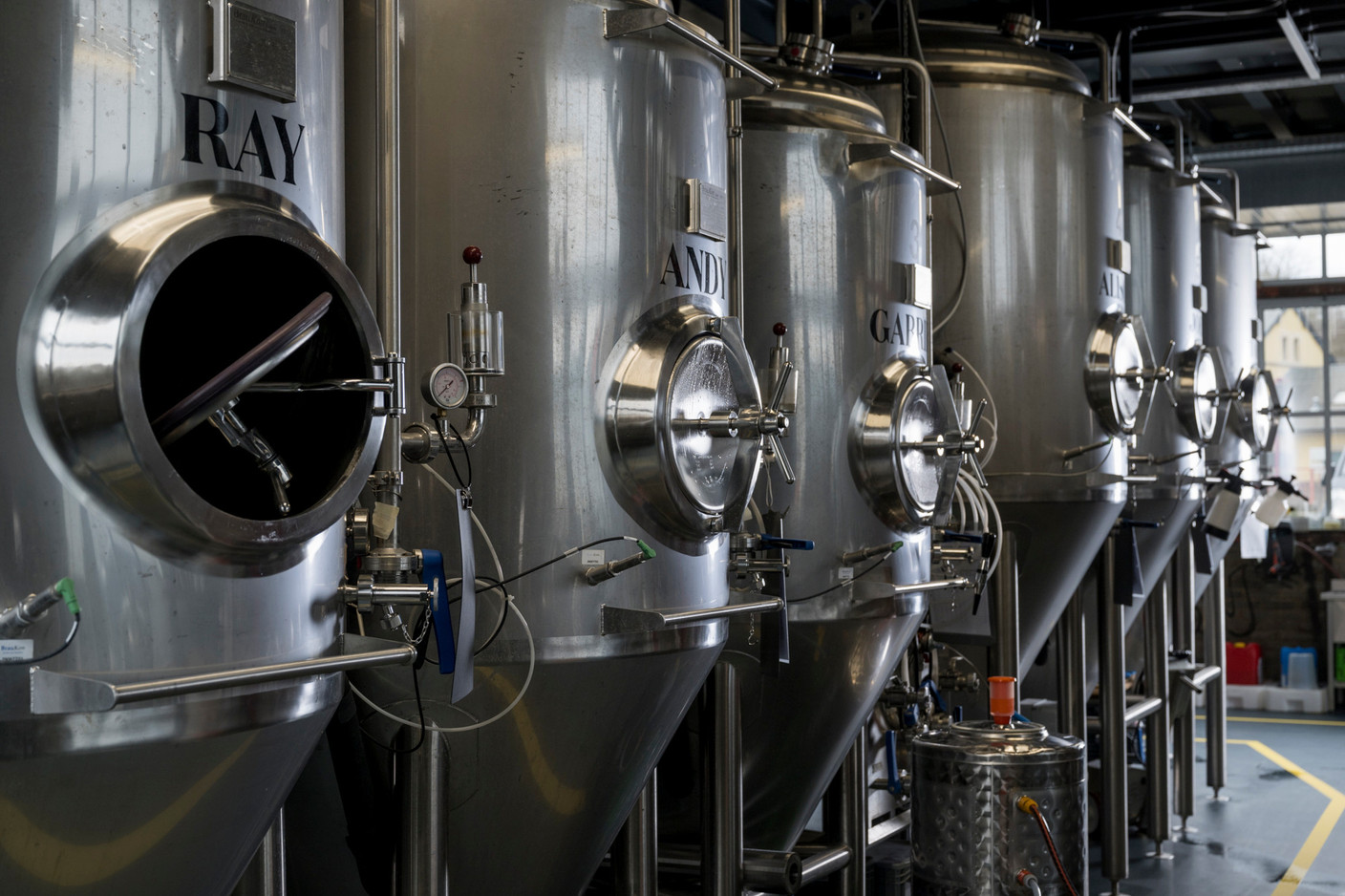(To our readers: Paperjam’s editorial team spent Thursday and Friday in Dudelange, meeting the political, social and economic players in this municipality of 22,000 inhabitants. This article is part of that “concentrated” approach. We hope you enjoy reading these articles.)
The location is truly incredible: a locomotive hall on the future site of Neischmelz, just behind the National Audiovisual Centre. The old industrial building was renovated by CBA Architects but the shell remains, with its large windows, brick walls and metal framework.
The city of Dudelange had issued a call for tenders for the operation of this atypical venue. “When I visited the place, I knew straight away that we had the ideal location,” recalls , who embarked on the business with his partners Tom and Ray Hickey for the restaurant and Joël Back, Alison Adams and Andy Schleck for the microbrewery. “At the time, we were already producing our Twisted Cat beer, but were dependent on other production sites. When we saw that the town of Dudelange wanted to develop a microbrewery and a restaurant, we were interested. And when I saw the site, I was immediately convinced by its potential.”
A microbrewery open to others
At the back of the hall, an area is now reserved for the microbrewery. “We brew for ourselves, our Twisted Cat beer, but also for others. We help them to create and develop their own recipes and provide them with the tools they need to brew and even can their own products.” It was here, for example, that the beer for the BAC bar was recently created and produced.
“We also have a Brew School where you can create your own beer, which is very popular with companies, sports clubs, etc. By coming here, they can have their own recipe, as well as a 500-litre production of beer kept in custom-designed cans. It really is a unique experience.”
A restaurant where you live an experience
At the front of the microbrewery is the “brew pub-style” restaurant. The food here is generous, simple and gourmet, with a few dishes that underline the fact that it belongs to the world of brewing: tarts flambéed with the brewery’s yeast, an IPA fish & chips, a ‘Braumeister’ cordon bleu with malt breadcrumbs... There are also Luxembourg dishes and dishes with mixed flavours, with a few Asian touches or the unmissable burgers.
There is, of course, a wide choice of beers, including those brewed on site, which are served directly from the production site to the bar--with no intermediaries--as well as a selection of beers produced by other local and international microbreweries.

The bar impresses with its selection of beers served on draft. Photo: Nader Ghavami
Boisante explains: “In total, around 20 people work here, including six exclusively for the brewery, which regularly produces the seven beers marketed under the Twisted Cat brand, and two collaborations with an international microbrewery per year. We’re also planning to develop our export market. Since our production facilities are ready, we’ve developed our network and we’re ready to tackle markets in neighbouring countries.”
A strategic location in the making
Kantin is also a pivotal location, situated between the old town of Dudelange and the future Neischmelz district. It’s a place that plays a full part in the transitional urban planning and life that is gradually taking hold while the site develops. “Kantin is already working well now, so just imagine what it will be like when the neighbourhood is denser!” says Boisante, who also confirms that they have achieved the targets they set themselves for this first year of operation. “We also have some areas that are not yet fully developed. For those first few months, we’ve concentrated on the microbrewery and the restaurant, but there’s also the events section, which is going to grow in strength. At the moment, we have DJ sessions and a few concerts, but it’s still very much dinner party-style. We can do a lot more to develop the festive aspect. That’s what we intend to do over the next few months.”
As for the neighbouring building site? He’s not afraid of that. “We still have access to our building. The construction works can go ahead without affecting us. We want to be part of this lively, busy town. And it’s a win-win situation for the city of Dudelange too, as it also has a stake in the establishment’s turnover. It’s a way of contributing to the collective effort,” concludes the passionate entrepreneur.
This article was originally published in .












